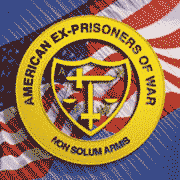
Established April 14, 1942
 |
American Ex-Prisoners of War
A not-for-profit, Congressionally-chartered veterans’ service organization advocating for former prisoners of war and their families.
Established April 14, 1942 |
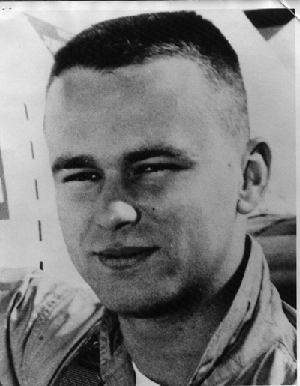 |
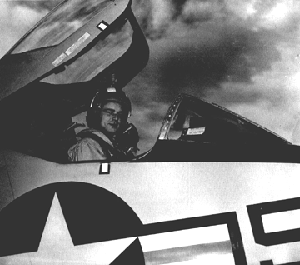 |
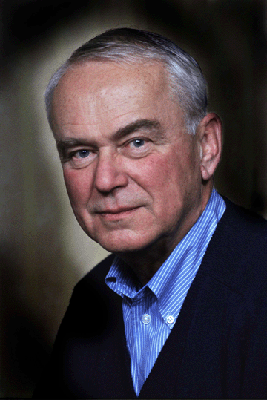
|
| Last Name | First Name, Middle Init. | Nickname |
| Spouse | City | State, Zip |
| Conflict | Branch of Service | Unit: |
| Military Job | Date Captured | Where Captured |
| Age at Capture | Time Interned | Camps |
| Date Liberated | Medals Received | |
| After the War ... | ||
"There's no such thing as a bad day when there's a doorknob on the inside of the door."
Paul Galanti was raised in a service family in many states, Japan, France, Turkey and Germany. He graduated from the U. S. Naval Academy in 1962 and then immediately entered Navy jet flight training at the Naval Air Station, Pensacola, Florida. Upon completion of advanced flight training at NAS Beeville, Texas in November 1963, he was chosen to be a flight instructor in Pensacola.
In November 1964, he was assigned to Navy Light Jet Attack Squadron 216 (VA-216) based aboard the carrier, USS Hancock, which departed for Southeast Asia in November 1965. Paul flew 97 combat missions in his A-4C Skyhawk before being shot down and captured.
On June 17, 1966, Paul was near Vinh, North Vietnam. His A-4 Skyhawk was hit after an attack on a railroad siding and, although he could see the rescue destroyers off-shore, his plane went out of control before he could reach them.
He ejected from his plane, was captured, taken North to Hanoi and paraded in the infamous "Hanoi March."
"This was ostensibly a 'spontaneous demonstration' on the part of the Vietnamese. However, as we left the park, the blindfolds were removed, we were handcuffed in pairs and marched into the street. The first thing I saw was a bunch of political cadres with megaphones inciting the people. At the end of the first block there was a big truck with movie equipment in it to play this spectacle up. A man came running up from the side, gave me a soccer-like kick in the groin and I went down in a heap. There was so much yelling it sounded like Notre Dame scoring a touchdown at South Bend. It lasted about forty five minutes. They finally got us to a soccer stadium, where they had trucks waiting, then took us back to the prison.
"I experienced over a year of solitary confinement with the hours broken only by infrequent communications (tapping or signing) with other Americans and a quarterly, miserable re-introduction to the "Camp Regulations for Captured American Criminals." A twice-daily English language broadcast provided a dose of the war as seen by the communists (and their too-many American supporters), and provided deep insight into a government of lies, deceit and perfidy. Theirs, not ours, or at least that's what we thought at the time.
"The camps were similar--each consisting of small cells which held from one to four POWs each. Any attempt to communicate with other Americans or other rooms was punished by a month in leg irons with one's hands handcuffed behind his back. And a torture session to force the POW to apologize for "breaking the camp regulations" and "committing crimes against the Vietnamese people."
"Despite all efforts to break the POWs, we remained as unified as it was possible to be under the circumstances. Our excellent leadership under COL Robbie Risner, USAF, and CDR Jim Stockdale held us together under these difficult circumstances, and we came out, most of us, better men than when we went in. Jim Stockdale received the Medal of Honor for his efforts to unify us and was tortured many times for his actions. Seven Vietnam POWs received the Medal of Honor--three for heroism prior to their being captured--an incredible percentage for a group that totaled 801, including civilians.
"After the Son Tay raid in 1970, the North Vietnamese hastily moved all American POWs to camps in the Hanoi area. Since there were too few of the small rooms, they were forced to move up to 50 POWs into each of several 60-ft. by 20-ft. cells. During solitary confinement, many of us had relived our lives--going back in time to each of the classrooms where we had learned things while growing up and in college."
"Now that we were together at last -- for the longest held, Everett Alvarez, it had been more than six years -- we formally organized a structured learning environment. While each room was slightly different, mine held classes on every conceivable topic including French (I taught the class, drawing from courses I attended at the Naval Academy), Spanish, German and Russian. Other courses were math (through differential equations), architecture, engineering drawing and even music. Each was taught without benefit of books, audio-visual equipment or teaching certificates, but the instruction was so effective that three of our enlisted men, who had no college training prior to their capture, passed more than 100 semester hours of college-level validation exams on their return."
In addition to physical torture, Commander Galanti was subjected to an agonizing session after "violating the prison regulations." Having received two letters and a package from home, he assumed it was a special deal to make him look bad in the eyes of his fellow POW's. In order to show that such was not the case, he threw a package of Lifesavers to one of the other cells in the bath-house. A guard saw and reported it. For this he was made to sit on a small stool in an interrogation room during the coldest part of the year. He sat there for ten days and nights, drugged and deprived of sleep, before being forced to apologize to the camp commander.
"We were proud to be serving our country, and openly scoffed at our North Vietnamese captors who proclaimed that they were going to drag the war out so their allies in the United States would force the American government to withdraw. We discounted trips to Hanoi by various American personalities such as Jane Fonda, Ramsey Clark and a few anti-war no-names who were referred to as "comrade" by the Vietnamese.
"When President Nixon mined the harbors of Vietnam and ordered the B-52 bombings in 1972, we POWs knew that the war would be over soon. We had known what it would take to finally get the North Vietnamese to seriously negotiate seven years before.
"And, indeed it was so. The North Vietnamese agreed to release all prisoners of war. The U.S. agreed to go home and the North Vietnamese agreed to stay out of South Vietnam. We were going to resupply the South Vietnamese and give that country support in the event of further northern aggression. The POWs were released, and many happy scenes occurred throughout the nation as families were reunited after many years of separation."
Optimism helped Galanti most in surviving his ordeal. "I think it's human nature. American human nature, anyway. The fact that they stopped the sleep deprivation period and let me go on living was a good sign that I'd probably be going home someday. When the bombing stopped that would be a good sign. When it started up again that would be a good sign. I sincerely believe that optimism is the basis of all faith and without it I'd probably have gone crazy.
"My Dad taught me that you must have goals -- an overall goal and smaller goals in between. My lifelong goal was to be a pilot; the smaller ones were to finish elementary school then high school then enter college and finally to finish flight training. During captivity the Code of Conduct was my goal. Sometimes pretty tough to live up to the Code was the standard the goal to strive for."
Galanti finished flight training refresher in November 1973. He served a tour in Navy Recruiting in Richmond, Virginia pushing optimism in over 200 presentations to schools churches and civic groups.
In 2002, Paul was appointed as the Director of National Services Officers for the American Ex-Prisoners of War and currently is a National Director and service/legislative officer for that organization and a columnist in its magazine. In 2003, he was appointed by Secretary of Veterans Affairs, Anthony J. Principi to serve on the Secretary's Advisory Committee on Former POWs. Galanti was named to serve on the Board of Virginia's new Department of Veterans' Services by Governor Mark Warner. He was reappointed by Governor Tim Kaine and elected Chairman of the Board of Veterans Services in 2006. Paul is also currently active in the Families of the Wounded Fund, a wonderful group that raises funds for the primary next of kin for our Iraq and Afghanistan wounded soldiers. "It's the most rewarding thing I think I've ever done."

| 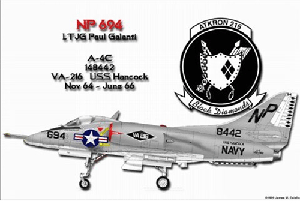
| 
|